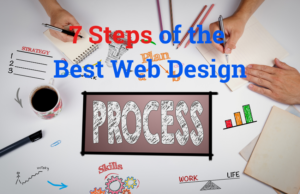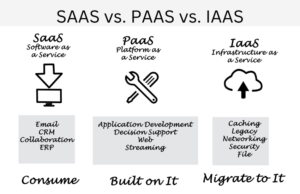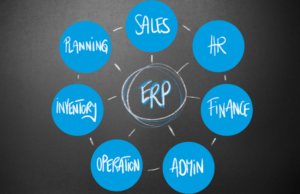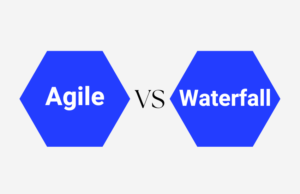80% of consumers start their purchasing journey online. This means that your eCommerce website needs to be able to compete for consumers’ attention. This can be challenging, as 51% of potential customers shop on six or more eCommerce websites. To compete, your eCommerce business needs to adopt the best content marketing strategies. In this blog post, we will take a look at digital marketing in eCommerce.
Intro
Online stores have changed the way consumers shop. Now, shoppers have online access to the products they want, allowing them to make purchases 24 hours a day, 7 days a week.
Ecommerce marketing has changed too, with each business needing its strategy for reaching loyal customers. With consumers constantly on their smartphones or tablets, eCommerce businesses need to have a presence on digital channels. Digital marketing allows businesses to reach customers through different channels, such as social media, search engines, email, and their websites.
The goal of digital marketing is to create and maintain a community of customers who want to purchase your product or service. A successful campaign can lead to more sales, repeat purchases, referrals, and word-of-mouth marketing.
What are the benefits of using Digital Marketing in eCommerce?
There is little doubt that digital marketing is the future of business. Today, consumers around the world are spending more and more time online. At the same time, more e-commerce businesses are opening their doors to the internet.
These changes have created a unique marketing environment. You need to adopt good digital marketing and content marketing strategies to get ahead. But what are the benefits of digital marketing? Here are some;
Reach
One of the most significant benefits of digital advertising is its reach. Well-planned online marketing strategies enable you to reach consumers worldwide without worrying about geographic borders. You can use digital marketing techniques to attract consumers from different areas, including people who may not already be part of your market.
Speed
Digital marketing is also incredibly fast. You can launch a marketing campaign in a matter of hours, or even minutes, instead of days or weeks with more traditional marketing methods.
Cost
Another benefit of digital marketing is the cost. Online marketing is typically much cheaper than traditional marketing. This makes them ideal for startups and new businesses, who may not have the budget for an extensive marketing campaign. In online content marketing, you spend an amount on your specific and targeted audience as per their interest. However, in traditional marketing, if you place a signboard on a roadside, maybe 1000s of people see that board, but how can you confirm that? How many peoples from them is your targeted audience? Therefore the acquisition cost of a loyal customer is much cheaper in online marketing than in traditional marketing.
Analytics
If there is no measurement, there is no marketing. Another benefit of using digital marketing strategies is the ability to measure their success. You can track the success of your campaign using analytics. Using analytics, you can see which strategies are most effective and which campaigns cost the most money. Hence in traditional marketing, you can’t measure your target.
Behavior
Digital marketing also helps you analyze the behavior of your consumers. With traditional marketing, you don’t know how consumers are interacting with your brand. With digital marketing, you can see exactly what consumers do, how long they spend on your site, and what actions they take.
Web analytics can help businesses improve their online marketing efforts. With web analytics, businesses can analyze their website traffic, sales, and conversion rates. They can even compare the success of different marketing campaigns to see which efforts were the most effective.
What are the Most Effective Digital Marketing Channels for eCommerce

Digital marketing covers a range of marketing efforts, including search engine optimization, pay-per-click advertising, social media marketing, email, content marketing, and website development.
These channels provide various benefits to e-commerce stores as per their marketing budget and eCommerce marketing strategies, including increased brand awareness, website traffic, leads, conversions, and revenue.
Search Engine Optimization (SEO)
SEO is the process of optimizing website content and pages for search engines. SEO aims to drive more organic traffic to a website by ranking high on the search engine results page for a particular keyword or topic. Search engine optimization (SEO) is the process that improves the volume and quality of traffic to a website from search engines via “natural” (“organic” or “algorithmic”) search results.
Search Engine Marketing (SEM)
SEM is a form of Internet marketing that involves the promotion of websites by increasing their visibility in search engine results pages (SERPs) primarily through paid advertising. PPC (Pay Per Click) is a widely used search engine marketing technique, mostly on Google as google Adwords.
Social Media Marketing
Social media marketing refers to gaining website traffic or attention through social media channels like Facebook, Instagram, Tiktok, Twitter, and the largest professional network LinkedIn. A social network is a great way to get your business in front of people who may be interested in what you offer, so make sure that you’re using all available platforms and avenues to spread the word about your business.
Email Marketing
Email marketing is a form of direct marketing that uses email to send commercial messages such as newsletters, promotions, or product updates. Email campaigns are the act of sending a commercial message, typically to a group of people, using email.
Video Marketing
Video marketing is also an effective way to reach your audience. You can create videos to showcase products, educate customers on products, and provide other valuable information to customers.
Affiliate Marketing
Affiliate marketing is also an effective way to reach your audience. The business can partner with a website owner to promote products on their website.
Influencer Marketing
Influencer marketing is another way to reach your audience. The business can reach out to celebrities or influential people to communicate with their audience through social media platforms.
Website Development
Website development is the process of building a website. Website development includes website design, content creation, and website programming. Website is the face of your business on the web.
One common thing in all online marketing platforms is providing valuable content to your user that gives value to your user. If your content is not valuable or engaging and not providing the solution your user is looking for, then all digital marketing efforts are wasted.
To Effectively Market your Product or Service, you need to consider the following factors.
Your Audience
You need to determine who your ideal customer is. Are they male or female? How old are they? Where are they located geographically? Do they live alone or with family? What type of household income do they have? What are their interests?
Your Message
Once you have identified your target audience, you must decide what kind of information you will share with them. Will you offer free samples? Discounts? Coupons? Or maybe you will send them a newsletter full of helpful tips and tricks.
Your Brand Identity
You might want to emphasize comfort and style if you sell shoes. You might want your brand to convey reliability and quality if you sell electronics.
Your Budget
How much money do you have available to invest in your marketing efforts?
Your Objectives
What do you hope to accomplish through your campaign? Is it to increase traffic to your site? To generate leads? To encourage repeat purchases? To raise awareness about your brand? Setting your marketing goals before starting to run any marketing campaigns is essential.
Your Competition
Determine if there are any competitors in your industry. Find out what they are doing, and see if you can learn anything from them.
Your Strategy
Decide how you will measure success. Will you track the number of visitors to your site? The amount spent per visitor? What percentage of people who click on links leading back to your site? The number of phone calls made? The number of orders placed?
Your Tactics
Choose a few key strategies that you feel confident implementing. Then choose some tactics to implement those strategies. For example, if you want to drive more traffic to your site, then you might post articles on popular blogs. Or you might post a link to your site on social media platforms.
Marketing Analytics
Marketing analytics is the most crucial part of measuring your digital platform progress. Measure the results of your actions against your expectations. Make adjustments as necessary.
Your Timeline
Estimate when you expect to reach your goals. Be realistic! Don’t set yourself up for failure by setting unrealistic deadlines.
How Digital Marketing in eCommerce helps Businesses
Customers today have many choices when they want to shop for products online. If the websites are poorly set up, customers will probably shop somewhere else. This makes digital marketing vital because it helps eCommerce companies stay relevant.
Marketing helps them to identify customers who are interested in their products. Companies can do this by listening to their customers, finding out what products they want, and targeting advertisements toward them through different online channels. It also helps businesses get feedback from their customers and users to maintain quality build good relations with them, and win customer loyalty.
With the growth of online shopping, eCommerce companies find reaching new customers challenging. As a result, many companies are shifting their focus to digital marketing due to the number of benefits.
More Customers
Online marketing helps eCommerce companies reach a larger and more specific audience as per their interest and grow their business.
Higher Conversion Rates
Companies deliver the right message to their audience. This enables them to generate more leads and sales.
Better customer insights
Digital marketing helps eCommerce companies collect important data about their customers. This enables them to provide a better customer experience and solve problems more effectively.
Better ROI
Digital marketing helps eCommerce companies generate a higher ROI. As a result, they spend less money and generate more revenue.






